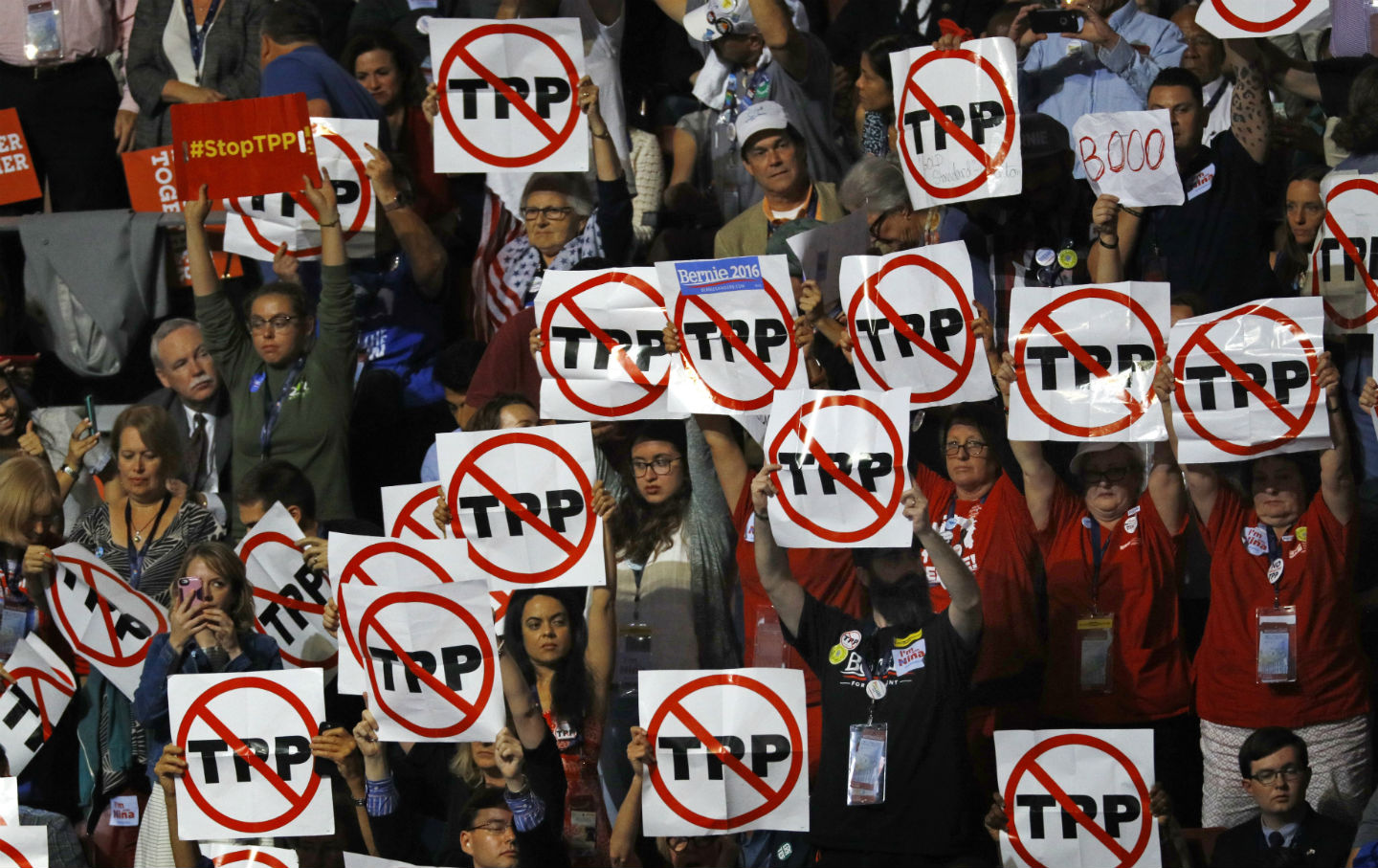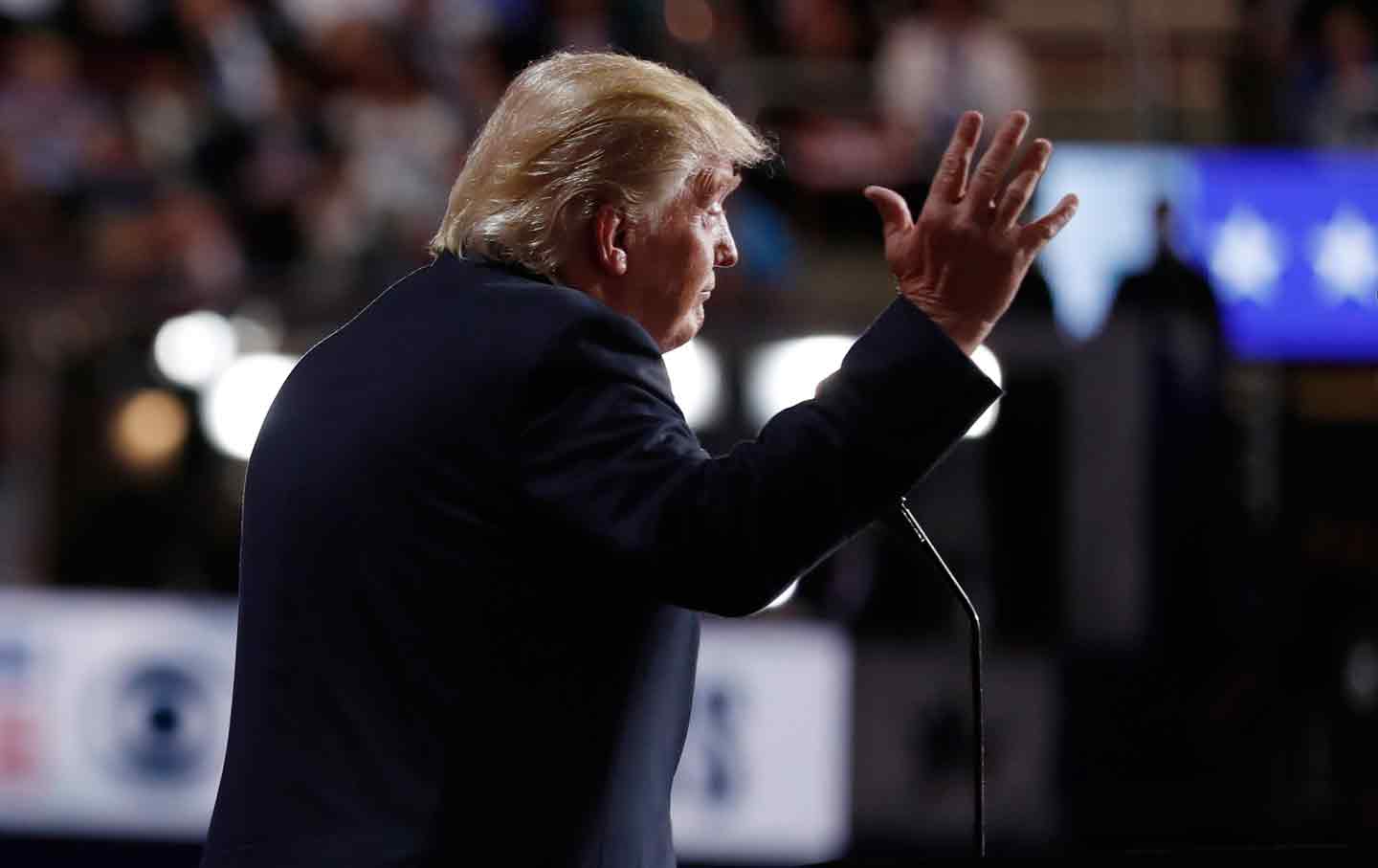newthinking
newthinking's JournalThe Democratic Convention Is Highlighting the Difference Between Electoral and Movement Politics
Elected officials operate within the parameters of possibility. Movement politics is about redefining those parameters.
By Bruce Shapiro
The Nation Magazine
Going into the next few days, here’s a meditation for Hillary Clinton and Bernie Sanders voters alike: Please take 10 minutes to ponder the difference between electoral politics and movement politics. On the convention floor in Philadelphia they’re being conflated, by both sides in the Democratic family argument and by too many reporters.
Begin with FDR’s famous maxim: “OK, you’ve convinced me. Now go out and put pressure on me.” What FDR understood: Elected officials, even the best and most principled, operate within the parameters of possibility that they discern in their constituency. In that sense, elected officials—and American presidents most of all—are the end of the political digestive system. Electoral politics is usually the last place change gets felt. Even a sympathetic, justice-minded president is only likely to speed reform when backed by a powerful grassroots campaign, as Lyndon Johnson did with the Civil Rights Act and Barack Obama did with marriage equality.
And a reactionary president can halt or reverse decades of progress if there’s a gutted vacuum where a vital movement used to be, as Ronald Reagan understood better than anyone.
Movement politics, on the other hand, is about reshaping and redefining those parameters. Moving the goalposts. It’s not only cynicism that has moved Hillary Rodham Clinton to oppose the Trans-Pacific Partnership, and embrace a vice-presidential candidate who is far to the left of the Bill Clinton legacy on most issues. It’s her awareness—too slow to dawn, perhaps, but awareness nonetheless—that after a generation of free-trade bills and Wall Street deregulation and prison expansion, the terms of debate have changed. Thank you, Bernie.
Full story:
https://www.thenation.com/article/the-democratic-convention-is-highlighting-the-difference-between-electoral-and-movement-politics/
Delegates Are Using the Convention to Make the TPP Politically Unacceptable
A clear line has been drawn at the corporate-friendly trade deal during this year's convention.By John Nichols
The Nation Magazine

Delegates hold anti–Trans-Pacific Partnership signs during the Democratic National Convention in Philadelphia, July 27, 2016. (Reuters / Scott Audette)
Philadelphia—When President Obama looked out across a packed hall at the Democratic National Convention Wednesday night, he could not have missed the large square signs opposing the Trans-Pacific Partnership. They could be seen throughout the sprawling arena. In the Texas delegation and the Oregon delegation, in the Washington delegation and the Wisconsin delegation, delegates waved signs showing the letters “TPP” circled and with a red line slashed through them.
Mid-way through the president’s well-received address to the convention, delegates in a stand directly opposite the stage unfurled a sign that read: “TPP Kills Democracy.” And right up front, wearing his “Stop TPP” T-shirt, stickers and pins, was retired lawyer Stephen Spitz from Falls Church, Virginia.
“I wanted to make sure that he saw that Democrats do not want him to submit the TPP in the lame-duck session of Congress after the election,” said Spitz, the “End Corporate Rule” coordinator for the group Progressive Democrats of America.
Many of the people holding up the anti-TPP signs cheered when the president spoke of addressing inequality and injustice. Some attached their various anti-TPP signs—many of them produced by the National Nurses United union—to blue-and-white signs that read “Obama,” which were distributed by party officials and filled the hall for the president’s address.
The TPP is where the line has been drawn at this convention.
Even before delegates gathered in Philadelphia, platform drafters wrangled over the issue—finally settling on a strongly worded statement declaring that trade agreements “must not undermine democratic decision making through special privileges and private courts for corporations, and trade negotiations must be transparent and inclusive. Democrats’ priority is to significantly strengthen enforcement of existing trade rules and strengthen the tools we have, including by holding countries accountable on currency manipulation and significantly expanding enforcement resources.” Outlining labor, environment and currency-manipulation standards, and calling for “streamlined and effective enforcement mechanisms” that “protect workers and the environment,” the amendment insisted that “These are standards all Democrats believe should be applied to all trade agreements, including the Trans-Pacific Partnership.”
Full story: https://www.thenation.com/article/delegates-are-using-the-convention-to-make-tpp-politically-unacceptable/
The Nation - Against Neo-McCarthyism
In their eagerness to defeat Trump, liberal pundits are reviving a damaging discourse.By the Editors
The Nation Magazine
https://www.thenation.com/article/against-neo-mccarthyism/

Republican presidential nominee Donald Trump speaks at the Republican National Convention in Cleveland, Ohio on July 21, 2016. (Reuters / Mark Kauzlarich)
In their zeal to prevent Donald Trump from becoming president—a goal we share—representative voices of the liberal establishment have joined with the forces of neoconservatism to engage in what can only be described as McCarthyist rhetoric. This magazine, which has a long and proud history of standing up to the worst excesses of McCarthyism, repudiates this unwelcome echo of the past. Let us recall that McCarthyism impugned the loyalty of American citizens by accusing them of allegiance to the Soviet Union. This political defamation—often a joint undertaking of Congress and the media—suppressed democratic debate over alternative policies and ideas, and in the process destroyed lives by stigmatizing those whose views were deemed insufficiently loyal to Cold War–era orthodoxies. The overall effect was to poison, chill, and censor the political discourse of the nation.
To adopt the pernicious language of McCarthyism is to turn our backs on the best traditions of our country.
While Trump himself has hardly been damaged by today’s revival of McCarthyism, the same cannot be said for our national debate. Over the past month alone, establishment voices like Franklin Foer, Paul Krugman, Jeffrey Goldberg, Josh Marshall, and Jonathan Chait, among others, have Kremlin-baited Trump in lieu of reasoned argument and factual critique. On July 21, The Atlantic’s Goldberg informed readers that “The Republican nominee for president, Donald J. Trump, has chosen this week to unmask himself as a de facto agent of Russian President Vladimir Putin.” Krugman followed this up on July 22 by asking in The New York Times: “If elected, would Donald Trump be Vladimir Putin’s man in the White House?” Krugman then answered his own baseless question: “Mr. Trump would, in office, actually follow a pro-Putin foreign policy, at the expense of America’s allies and her own self-interest.”
The idea that Trump is some kind of Manchurian candidate first took root thanks to a mistranslation of a remark by Putin, which was misconstrued as high praise for Trump by the media—and by Trump himself. To be sure, the GOP candidate has suggested that he may pursue a policy of détente with Russia. He also, in our view wisely, threw out a reckless plank in the Republican platform that pledged to further arm Kiev. But Trump is only following the lead of the current administration. Should we assert seditious links between President Obama’s policy and the Kremlin?
This neo-McCarthyism now threatens to derail a vital debate over the substance of the 20,000-plus e-mails, made public by WikiLeaks on July 22, that reveal the purportedly neutral Democratic National Committee’s derision and contempt for Senator Bernie Sanders’s campaign—as well as several aborted attempts to tip the scales against him. While the FBI has launched an investigation, as of press time, nobody has conclusively proven who hacked into the DNC’s network, much less demonstrated what their motives were. But that didn’t stop Clinton campaign manager Robby Mook from appearing on CNN on July 24 to allege that Russia was behind the hack. “Sources are saying the Russians are releasing these e-mails for the purpose of actually helping Donald Trump,” said Mook. To no one’s great surprise, he neglected to tell CNN who his sources were. Nevertheless, liberal-media elites have joined with the Clinton campaign in promoting the narrative of a devious Russian cyber-attack, which Fairness and Accuracy in Reporting’s Adam Johnson correctly points out “is being used to outweigh the damning substance of the leak itself.”
Continued:
https://www.thenation.com/article/against-neo-mccarthyism/
Misunderstanding Russia and Russians - Observations from a former diplomat
This is a must read for anyone that wants to get a better understanding of modern Russia.
Ann is highly qualified to write about the region:
By Ann Wright
I’ve just ended two weeks visiting cities in four regions of Russia. The questions that were asked over and over were: “Why does America hate us? Why do you demonize us?” Most would add a caveat — “I like American people and I think YOU like us individually but why does the American government hate our government?”
This article is a composite of the comments made and questions asked to our 20-person delegation and to me as an individual. I do not attempt to defend the views but offer them as an insight into the thinking of many of the persons with whom we came into contact in meetings and on the streets.

Russian kids attending a youth camp called Artek in Crimea. (Photo by Ann Wright)
New Russia Looks Like You
The United States worked hard to make the Soviet Union collapse, and it did. You wanted to remake Russia like the United States – a democratic, capitalist country in which your companies could make money – and you have done that.
After 25 years, we are a new nation much different from the Soviet Union. The Russian Federation has created laws that have allowed a large private business class to emerge. Our cities now look like your cities. We have Burger King, McDonalds, Subway, Starbucks and malls filled with a huge number of totally Russian business ventures for the middle class.
We have chain stores with merchandise and food, similar to Wal-Mart and Target. We have exclusive stores with top-of-the-line clothing and cosmetics for the richer. We drive new (and older) cars now just like you do. We have massive rush hour traffic jams in our cities, just like you do. We have extensive, safe, inexpensive metros in all of our major cities, just like you have. When you fly across our country, it looks just like yours, with forests, farm fields, rivers and lakes — only bigger, many time zones bigger.
Most people on buses and in the metro are looking at our mobile phones with internet, just like you do. We have a smart youth population that is computer literate and most of whom speak several languages.
Continued:
https://consortiumnews.com/2016/07/05/misunderstanding-russia-and-russians/
Hacked Emails Reveal NATO General Plotting Against Obama on Russia Policy
Source: The Intercept
RETIRED U.S. AIR FORCE Gen. Philip Breedlove, until recently the supreme commander of NATO forces in Europe, plotted in private to overcome President Barack Obama’s reluctance to escalate military tensions with Russia over the war in Ukraine in 2014, according to apparently hacked emails from Breedlove’s Gmail account that were posted on a new website called DC Leaks.
Obama defied political pressure from hawks in Congress and the military to provide lethal assistance to the Ukrainian government, fearing that doing so would increase the bloodshed and provide Russian President Vladimir Putin with the justification for deeper incursions into the country.
Breedlove, during briefings to Congress, notably contradicted the Obama administration regarding the situation in Ukraine, leading to news stories about conflict between the general and Obama.
But the leaked emails provide an even more dramatic picture of the intense back-channel lobbying for the Obama administration to begin a proxy war with Russia in Ukraine.
In a series of messages in 2014, Breedlove sought meetings with former Secretary of State Colin Powell, asking for advice on how to pressure the Obama administration to take a more aggressive posture toward Russia.
Read more: https://theintercept.com/2016/07/01/nato-general-emails/
How to "Frame this opportunity"
Breedlove is insane

Profile Information
Member since: Wed Feb 10, 2010, 12:51 AMNumber of posts: 3,982